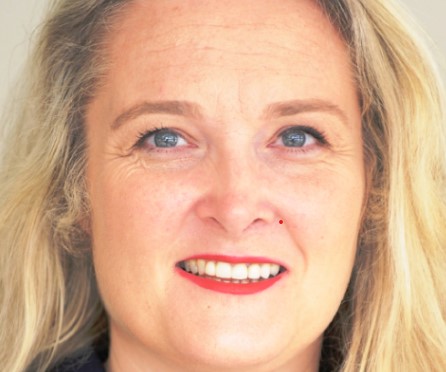Just under £1m raised for a sports charity through scratch card lotteries was siphoned off into the company bank accounts of two of its trustees, former Paralympian Matthew Dimbylow and his wife Emma, according to a Charity Commission investigation.
The regulator initially raised concerns about the running of their charity Dream It, Believe It, Achieve It, which promotes sport among young people with disabilities, eight years ago amid complaints from the public around its fundraising.
Their investigation found that the charity raised more than £6m via a series of scratch card lotteries run through a commercial lottery provider, which received around 70% of the donated funds.
But just £300,000 of the proceeds, equivalent to 5%, went to the charity, the regulator found.
A further £975,800 was made in payments to companies run by Matthew and Emma Dimbylow.
After finding that the couple mismanaged and misapplied the charity’s funds and are responsible for serious mismanagement, the regulator has permanently banned Matthew Dimblylow from sitting on the board of any charity. In addition, His wife has signed a voluntary agreement not to be a trustee again.
The regulator has also reached a settlement with the couple to recover the fund, after issuing a High Court claim in 2019.
Matthew Dimbylow was a semi-professional footballer, for among clubs including Kidderminster Harriers during the 1990s, before suffering a head injury in a 2003 match. After being diagnosed with a condition with similar symptoms to Parkinson’s disease he went on to represent Great Britain in the 2008 and 2012 Olympics.
Meanwhile, Dream It, Believe It, Achieve It’s remaining trustee, who was appointed after the misconduct took place, is winding up the charity, the regulator confirmed.
“The public expects trustees to ensure charitable funds are always carefully managed in the best interests of their charity and the cause they serve, in this case supporting children and disabled people with sport,” said Charity Commission head of investigations Amy Spiller.
“Instead, the Dimbylows abused the trust that was placed in them as trustees.
“It is right that we took action to recover misapplied charitable funds that went to the former trustees’ own companies and acted to ensure those responsible cannot become trustees again.
“We hope this sends a powerful message to others who may be tempted to use charity in this way.”
Latest News
-
X-odus sparks video content boom among charities, report finds
-
Charity handed £25m endowment from autistic philanthropist to help others with the condition
-
Civil Society Covenant blighted by delays and U-turns, report warns
-
More than 30 jobs at risk as hospice charity looks to close home care service
-
Cranfield Trust: A guide for charity leaders on navigating local authority devolution
-
Friday funding roundup - 20 February
Charity Times video Q&A: In conversation with Hilda Hayo, CEO of Dementia UK
Charity Times editor, Lauren Weymouth, is joined by Dementia UK CEO, Hilda Hayo to discuss why the charity receives such high workplace satisfaction results, what a positive working culture looks like and the importance of lived experience among staff. The pair talk about challenges facing the charity, the impact felt by the pandemic and how it's striving to overcome obstacles and continue to be a highly impactful organisation for anybody affected by dementia.
Charity Times Awards 2023
Mitigating risk and reducing claims

The cost-of-living crisis is impacting charities in a number of ways, including the risks they take. Endsleigh Insurance’s* senior risk management consultant Scott Crichton joins Charity Times to discuss the ramifications of prioritising certain types of risk over others, the financial implications risk can have if not managed properly, and tips for charities to help manage those risks.
* Coming soon… Howden, the new name for Endsleigh.
* Coming soon… Howden, the new name for Endsleigh.
Better Society

© 2021 Perspective Publishing Privacy & Cookies














Recent Stories